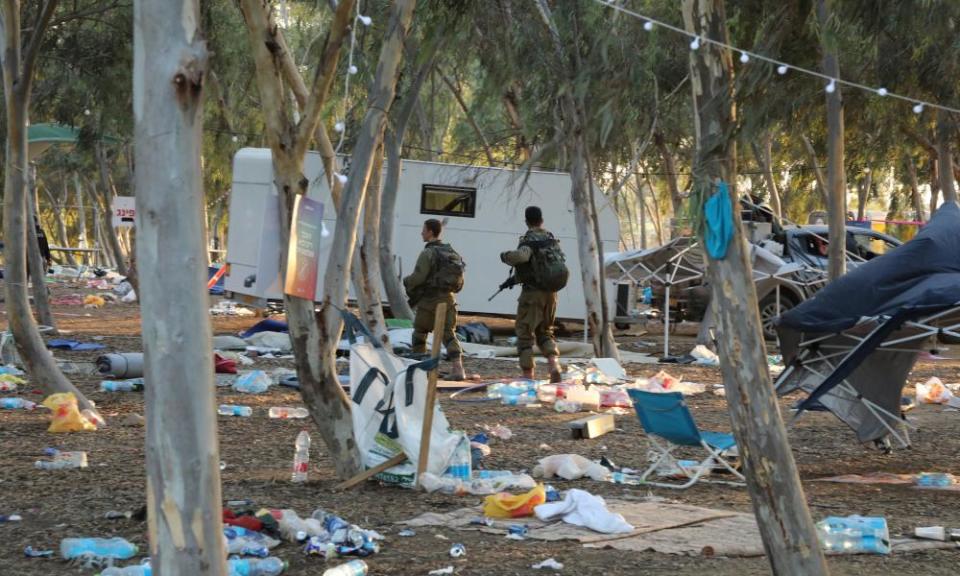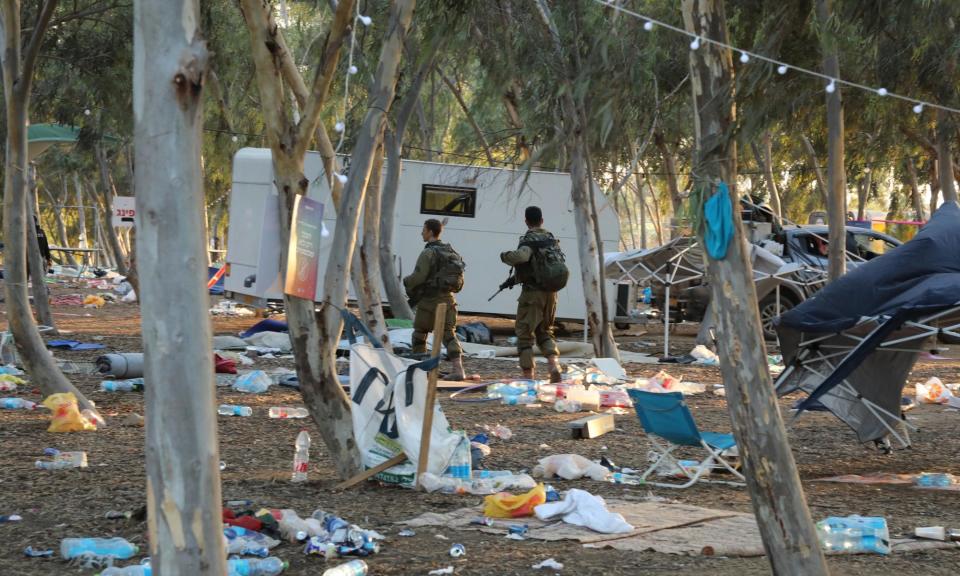UN finds ‘convincing information’ that Hamas raped and tortured Israeli hostages
The UN’s special envoy on sexual violence in conflict has reported “clear and convincing information” that some women and children hostages held by Hamas had been subjected to rape and sexualised torture and that there were “reasonable grounds” to believe such abuses were “ongoing”.
The special envoy, Pramila Patten, also reported on Monday that there were “reasonable grounds” to believe sexual assaults including rape and gang-rape in several places took place during the 7 October attacks by Hamas.
Patten led a nine-strong team of experts to Israel and the West Bank in the first half of February, but cautioned that there were limitations on what it could achieve in a limited time given a number of constraints.
Related: Hamas negotiators under pressure to produce list of hostages to be released
Primary among those limitations was that the team did not manage to meet any survivors of sexual violence during the 7 October attacks, “despite concerted efforts encouraging them to come forward”.
Patten said some were still undergoing trauma therapy, some had been relocated inside Israel or moved abroad, and some first responder witnesses had been deployed in the army.
She added: “The lack of trust by survivors of the 7 October attacks and families of hostages in national institutions and international organisations, such as the United Nations, as well as the national and international media scrutiny of those who made their accounts public, hindered access to survivors of the attacks, including potential survivors/victims of sexual violence.”
However, the UN team was able to talk to multiple witnesses, review a large quantity of video footage and pictures, and interview released hostages.
“Based on the first-hand accounts of released hostages, the mission team received clear and convincing information that sexual violence, including rape, sexualized torture, and cruel, inhuman and degrading treatment occurred against some women and children during their time in captivity and has reasonable grounds to believe that this violence may be ongoing,” the report said.
It added there were reasonable grounds “to believe that female hostages were also subjected to other forms of sexual violence”.
As part of a proposed new ceasefire agreement being negotiated in Cairo, 40 vulnerable hostages, including elderly people, the sick and women, are due to be released in an initial phase of a six-week truce. But progress in Cairo has been stalled, at least in part because Hamas has yet to provide a list of the 40 hostages.
In Patten’s team’s assessment of abuse on the day of the Hamas raids into southern Israel, the report found “there are reasonable grounds to believe that conflict-related sexual violence occurred during the 7 October attacks in multiple locations across Gaza periphery, including rape and gang-rape, in at least three locations.”
The Patten team also visited the West Bank to talk to Palestinian authorities, human rights groups and some released detainees about allegations of sexual assault of Palestinians in Israeli detention camps.
The allegations were first raised last month by a panel of UN experts who said there “credible allegations” of sexual abuse.
Patten’s report said there were no cases of alleged rape, but there were allegations of many other forms of assault, including “invasive body searches of detainees which include unwanted touching of intimate areas and forced unveiling of women wearing hijab; beatings, including in the genital areas; threats of rape against women and threats of rape against female family members (wives, sisters, daughters) in the case of men.”

 Yahoo News
Yahoo News 

